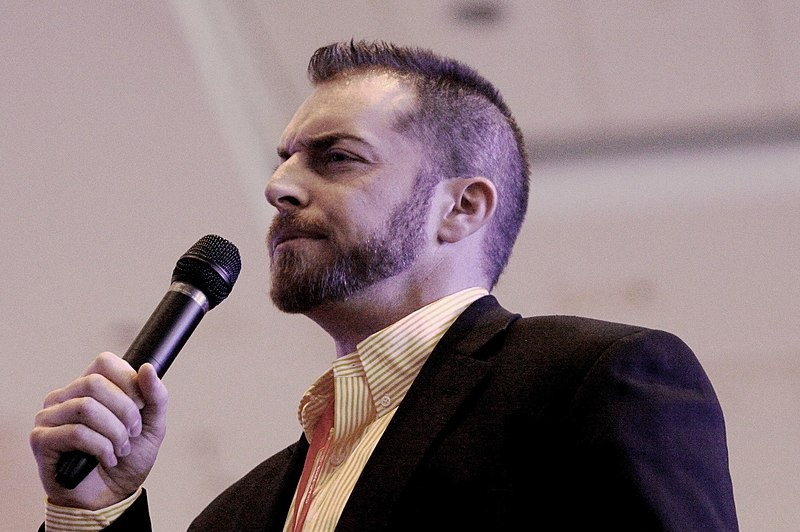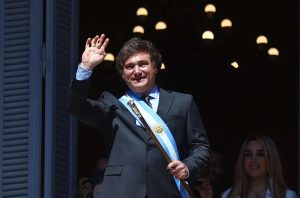There’s a presidential primary race afoot in the Libertarian party, America’s third largest.
In 2016, the Libertarians nominated former New Mexico governor Gary Johnson, and as his running mate, former Massachusetts governor Bill Weld. Their ticket received 3.28 percent of the national popular vote, the largest third-party vote share since 1996 and the best ever Libertarian performance.
For 2020, party leaders hope to break that record. Dan Fishman, executive director of the Libertarian National Committee, says the goal is to crest 5 percent of the popular vote, the share above which a minor party becomes eligible for federal campaign funding.
‘The numbers could be even higher,’ Fishman said. ‘More and more people are so incredibly frustrated by the two-party system.’
Right now, the LNC does not know its complete candidate pool, let alone its nominee.
‘Of course, timing is a lot, so a few people are waiting to announce,’ said Fishman. It won’t stay that way for long.
By this November, the leading five candidates qualify for a debate hosted by the South Carolina Libertarian party, the earliest state party to apportion its convention delegates.
‘There are a few names being talked about as those who are going to be there,’ Fishman said.
Jo Jorgensen, the Libertarian VP nom in 1996, ‘seems to have a very well-organized campaign.’ She has not officially declared her candidacy yet, but Fishman spotted her publicly-available campaign filing on the FEC’s database, which he uses to keep track of his party’s candidates.
Adam Kokesh, an online and radio personality, leads the pack in terms of donations, totaling $185,217.27 at the end of last filing period. At the top of his platform, Kokesh promises ‘a peaceful, responsible dissolution of the entire federal government.’
Another likely debater, Dan Taxation Is Theft Behrman (as he is named in his filing) comes in second with just over $15,000. Behrman is critical of current Federal tax policy.
Behind him, Kim Ruff, leader of the LP’s Radical Caucus, calls for such revolutionary aims as reducing ‘the executive branch to its constitutionally defined limitations’ or ending wars of aggression. (Not half bad, come to think of it.)
Fishman considers others, such as former LNC vice-chair Arvin Vohra or perennial candidate Vermin Supreme, to be serious about running but says they won’t make the debate unless they file with the FEC.
But what about John McAfee, the eccentric anti-virus entrepreneur and accused murderer? McAfee sought the Libertarian nomination in 2016 and had announced his intent to run again in 2020.
‘As far as I know, McAfee’s not actually running. He hasn’t raised any money, doesn’t have an FEC filing. We haven’t heard anything from him,’ Fishman said. ‘Last I heard he was living in Havana. His campaign site’s telling people to join the Libertarian party, which I am very grateful for.’
Asked to speculate on new entrants into the primaries, Fishman said, ‘Not only do I think some political figures will be joining, some wealthy libertarian celebrities might also get involved, not necessarily as candidates. I don’t need to mention names.’
Rep. Justin Amash, who recently left the GOP, said this past April that he was considering a Libertarian bid against Trump.
When last he saw Amash in July, Fishman said, the congressman absolutely did not commit to running for president as a Libertarian. ‘What he said is “the very important message is that I declared my independence from the Republican party. If I did anything else now, that message would get muddied.” Another message may or may not follow.’
When the nominee is chosen, they will be well positioned. The Libertarians expect to have ballot access in all 50 states for the third consecutive presidential election, a rare advantage for a minor party.
‘A lot of people are commenting on the strength of the party,’ Fishman said. ‘We had a really good August for membership, and I know our supporters and potential candidates are taking notice.’



















